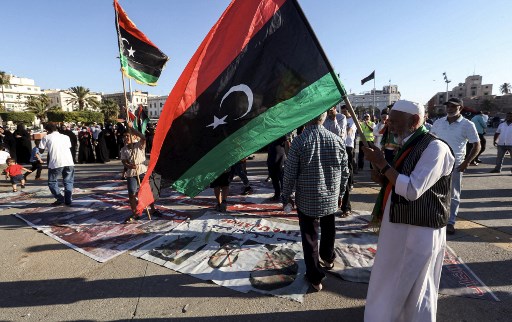
403
Sorry!!
Error! We're sorry, but the page you were looking for doesn't exist.
Rival authorities consent to solve bank catastrophe in Libya
(MENAFN) The United Nations Support Mission in Libya (UNSMIL) has announced that representatives from Libya's rival governments have recommitted to appointing a new central bank governor in an effort to resolve a dispute stemming from the recent ousting of the current leader of the Central Bank of Libya (CBL). This agreement was reached during negotiations between officials from the House of Representatives (HoR), located in Benghazi, and the High State Council (HCS) based in Tripoli.
In a statement released on Wednesday, UNSMIL indicated that the parties involved have signed preliminary letters outlining the procedures, standards, and timelines for appointing a new governor, deputy governor, and board of directors for the CBL. A formal signing ceremony is scheduled for Thursday, which will include representatives from various diplomatic missions in Libya.
The backdrop to this agreement involves significant turmoil that has gripped Libya since last month when the Presidential Council (PC) in Tripoli issued a decree removing Sadiq al-Kabir from his position as governor of the CBL. Since the 2014 NATO-backed uprising that toppled long-time ruler Muammar Gaddafi, Libya has struggled to achieve stability, becoming divided between competing eastern and western administrations.
The interim Government of National Unity, part of a United Nations-backed initiative aimed at preparing for elections, is based in Tripoli, while the rival administration operates from Benghazi, home to the national parliament. Despite several unsuccessful attempts to unify these factions, they remain entrenched in their respective positions, which is mirrored in the divisions within the CBL. The Tripoli branch, led by Kabir for over a decade, continues to be the only internationally recognized authority responsible for managing oil revenues and foreign reserves.
This latest agreement marks a potential step toward addressing not only the leadership crisis at the CBL but also the broader challenges of governance and stability that have plagued Libya for years.
In a statement released on Wednesday, UNSMIL indicated that the parties involved have signed preliminary letters outlining the procedures, standards, and timelines for appointing a new governor, deputy governor, and board of directors for the CBL. A formal signing ceremony is scheduled for Thursday, which will include representatives from various diplomatic missions in Libya.
The backdrop to this agreement involves significant turmoil that has gripped Libya since last month when the Presidential Council (PC) in Tripoli issued a decree removing Sadiq al-Kabir from his position as governor of the CBL. Since the 2014 NATO-backed uprising that toppled long-time ruler Muammar Gaddafi, Libya has struggled to achieve stability, becoming divided between competing eastern and western administrations.
The interim Government of National Unity, part of a United Nations-backed initiative aimed at preparing for elections, is based in Tripoli, while the rival administration operates from Benghazi, home to the national parliament. Despite several unsuccessful attempts to unify these factions, they remain entrenched in their respective positions, which is mirrored in the divisions within the CBL. The Tripoli branch, led by Kabir for over a decade, continues to be the only internationally recognized authority responsible for managing oil revenues and foreign reserves.
This latest agreement marks a potential step toward addressing not only the leadership crisis at the CBL but also the broader challenges of governance and stability that have plagued Libya for years.

Legal Disclaimer:
MENAFN provides the
information “as is” without warranty of any kind. We do not accept
any responsibility or liability for the accuracy, content, images,
videos, licenses, completeness, legality, or reliability of the information
contained in this article. If you have any complaints or copyright
issues related to this article, kindly contact the provider above.


















Comments
No comment